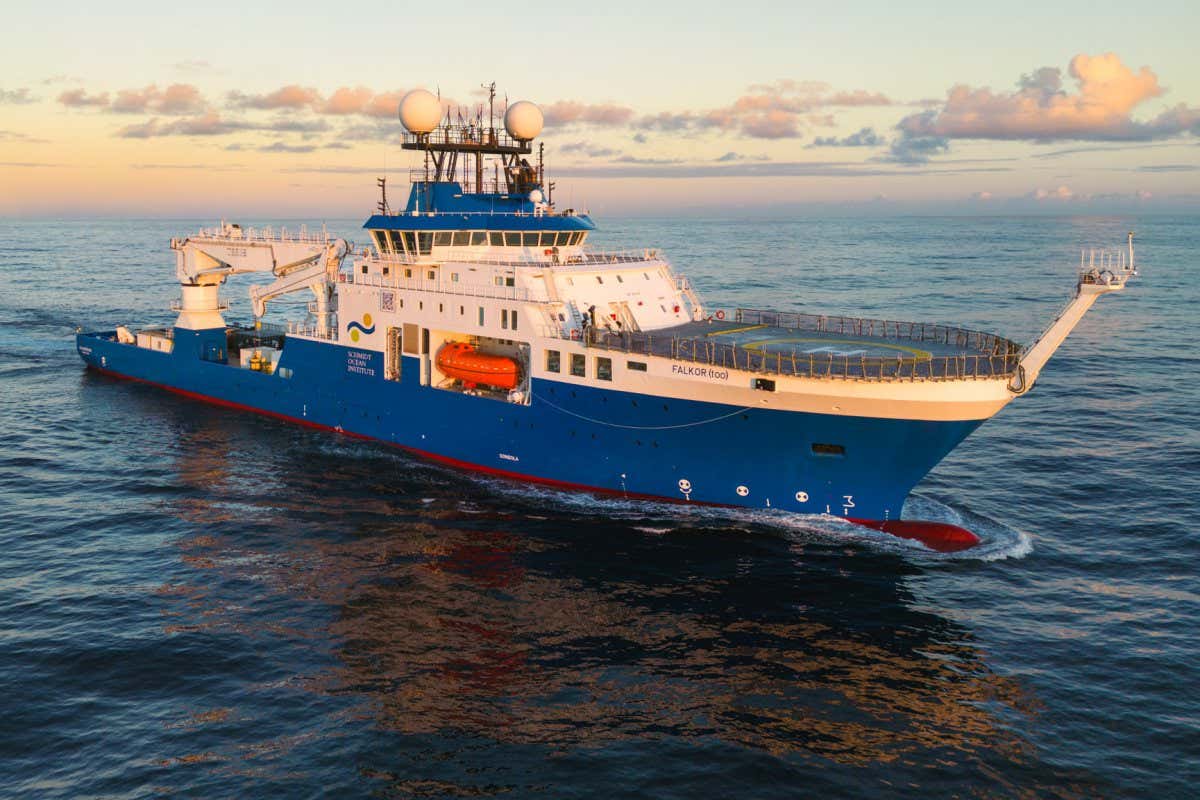Advanced Ship to Study Hydrothermal Vent Life: Unveiling Secrets of the Deep
The exploration of our planet's deepest, darkest corners has always captivated scientists. One of the most fascinating and least understood ecosystems lies within the hydrothermal vents scattered across the ocean floor. Now, a state-of-the-art research vessel, the RV Atlantis, is embarking on an ambitious expedition to unlock the mysteries of these unique, life-sustaining oases. This mission promises to revolutionize our understanding of hydrothermal vent life and its implications for life on Earth and beyond.
Exploring the Extreme: Hydrothermal Vent Ecosystems
Hydrothermal vents are underwater fissures that spew superheated, mineral-rich water. These seemingly hostile environments, found near volcanically active areas, teem with bizarre and uniquely adapted life forms. These organisms thrive in the absence of sunlight, relying instead on chemosynthesis – a process where they use chemicals from the vents to create energy. This drastically differs from photosynthesis, the process used by most life on Earth.
Key Species and Their Adaptations:
- Giant tube worms: These iconic creatures lack a digestive system, relying on symbiotic bacteria within their bodies to process chemicals from the vent fluids.
- Chemosynthetic mussels: These mussels also harbor symbiotic bacteria that provide them with energy.
- Hydrothermal vent shrimp: These shrimp are blind, possessing specialized sensory organs to navigate the dark, vent-rich environments.
- Vent crabs: These crabs are highly adapted to withstand the extreme temperatures and chemical composition of the vent fluids.
Understanding the intricate relationships within these ecosystems is crucial for understanding the resilience and adaptability of life under extreme conditions. This knowledge could have significant implications for our search for extraterrestrial life.
The RV Atlantis Mission: Technology and Objectives
The RV Atlantis, equipped with cutting-edge technology, is uniquely positioned to undertake this challenging expedition. Its advanced capabilities include:
- Remotely Operated Vehicles (ROVs): These robotic submarines allow researchers to explore the deep sea without the risks and limitations of human-occupied submersibles.
- High-resolution imaging systems: These provide detailed visual records of the vent ecosystems and their inhabitants.
- Sophisticated sampling equipment: This allows researchers to collect samples of organisms, water, and minerals for further analysis in laboratories around the world.
- Advanced sensors and data loggers: These are essential for monitoring the physical and chemical properties of the vent fluids and surrounding environment.
The primary objectives of this mission are:
- Mapping and characterizing hydrothermal vent fields: Creating detailed maps of vent locations and their characteristics.
- Studying the biodiversity of vent communities: Identifying and cataloging the different species present.
- Investigating the genetic diversity of vent organisms: Unraveling the evolutionary adaptations that allow these organisms to thrive in extreme conditions.
- Understanding the biogeochemical cycles in vent ecosystems: Studying the flow of energy and nutrients within these unique environments.
Implications for Astrobiology and Future Research
The study of hydrothermal vent ecosystems has significant implications for astrobiology, the study of life beyond Earth. The unique adaptations of vent organisms suggest that life might exist in seemingly inhospitable environments elsewhere in the universe, such as on other planets or moons with subsurface oceans.
This RV Atlantis mission is not just a scientific endeavor; it's a crucial step toward expanding our understanding of the limits of life. The data gathered during this expedition will provide invaluable insights into the origins, evolution, and diversity of life on Earth, and will undoubtedly inform future research on the potential for life beyond our planet. Further research will focus on understanding the long-term effects of climate change on these fragile ecosystems. This includes studying the impact of ocean acidification and rising sea temperatures on vent communities.
Call to Action: Stay Updated on the RV Atlantis Expedition
Follow the progress of the RV Atlantis expedition through official research channels and publications for updates on this groundbreaking research. The future of our understanding of life on Earth and the possibilities of extraterrestrial life hinges on these crucial deep-sea explorations. Learn more about the ongoing research and discover the wonders of hydrothermal vent life!
